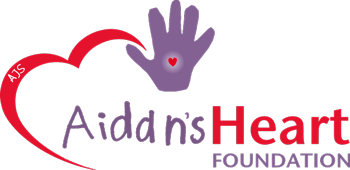Heart Screening Events for Children in Southeast Pennsylvania
Norristown Area School District Heart Screening Feb 2025
Residents and school families of the Norristown Area SD can get more information about this free heart screening event taking place on February 1st, 2025 which is also National Youth Heart Screening Day!
Ensure your child’s heart health by signing up for our upcoming heart screening events. Early detection can save lives. Don’t wait—take action today!
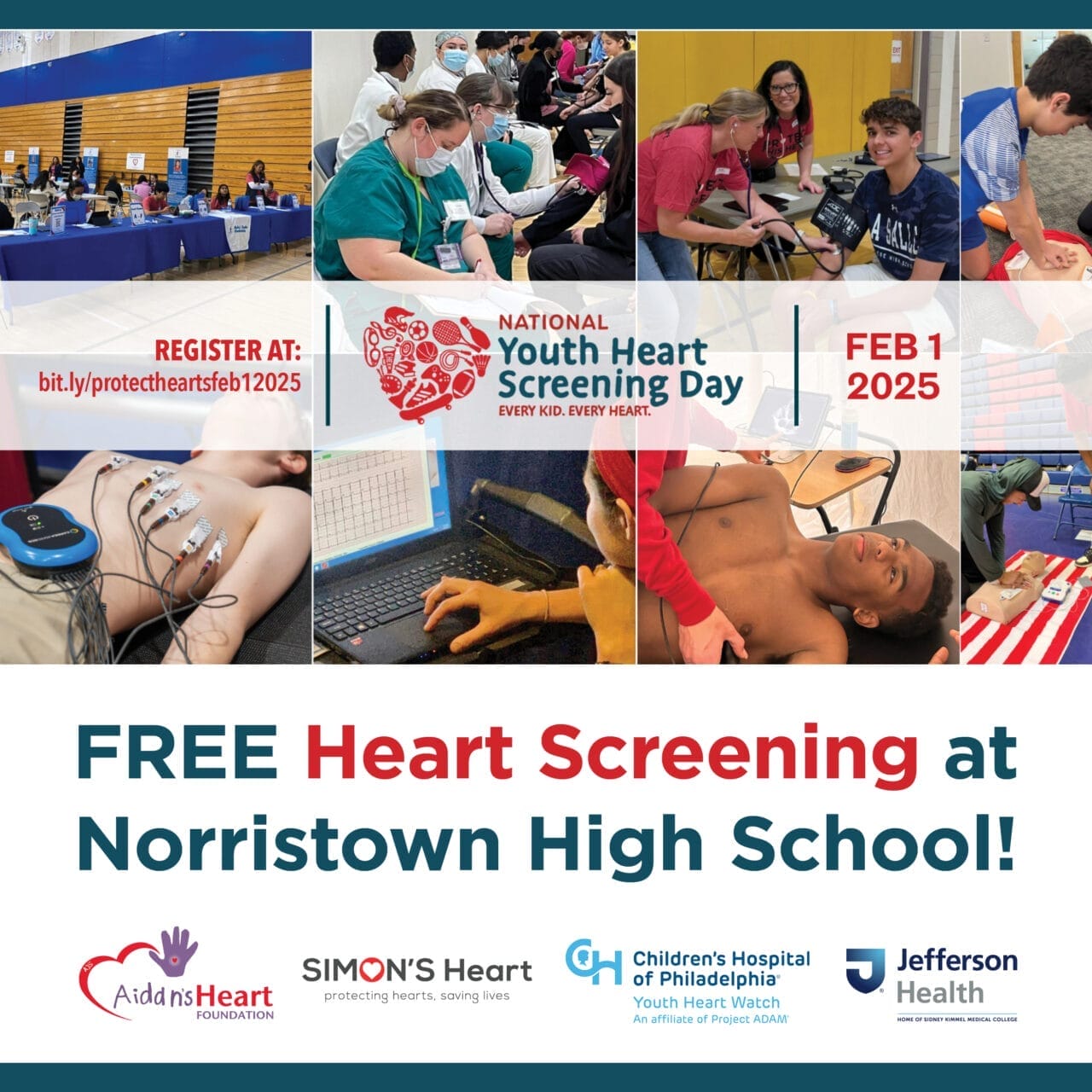
A quick EKG could have prevented Aidan from losing his life to Sudden Cardiac Arrest.
Aidan received a “high-five” and a clean bill of health from his pediatrician just six weeks before his unexpected sudden death. His family has no known heart issues and has no previously identified risk factors for heart conditions that cause death under age 50.
He was a beautiful, bright, happy spirit, dancing a “silly dance” with his brother just moments before his heart stopped without warning.
And just like that, he was gone.
Sign up to receive updates about our next heart screening event!
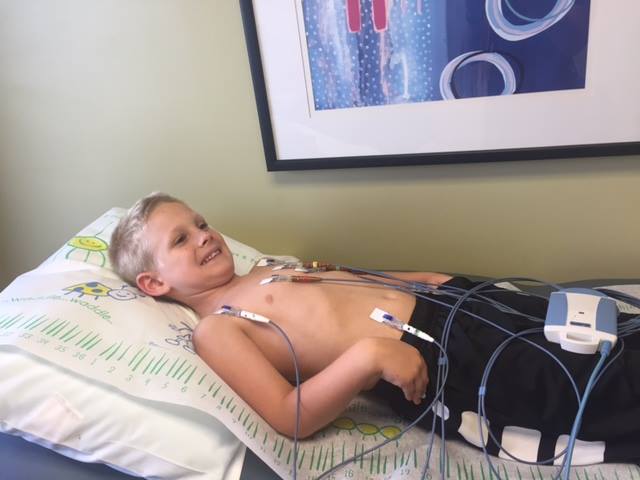
Photos from our Past Heart Screening Events
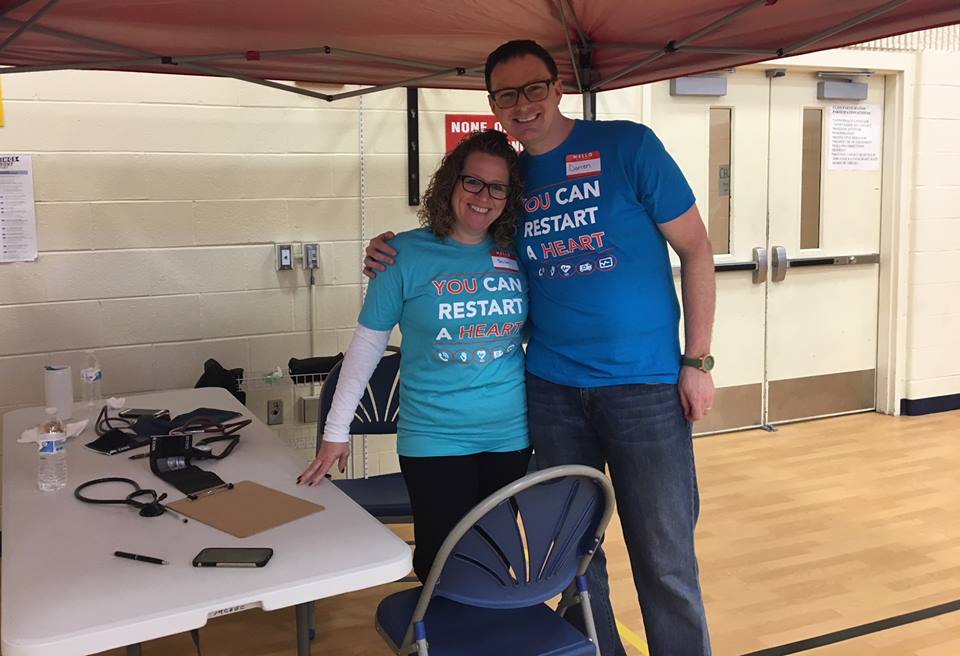
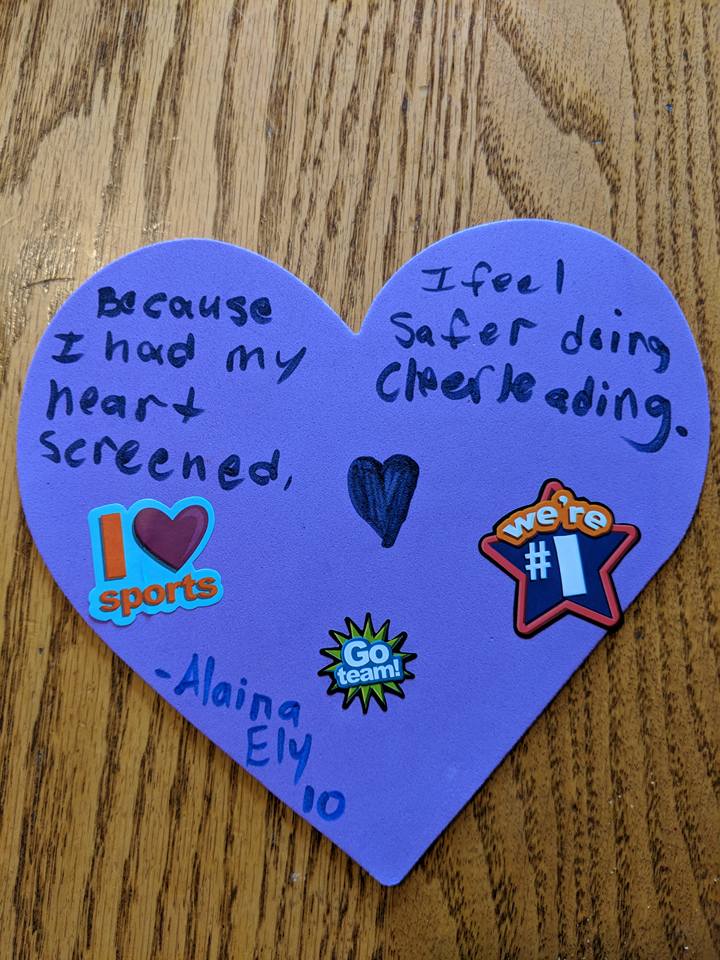

Should your child be screened?
Take a look at this Pediatric Heart History Questionnaire to the right.
If you respond YES to any of the listed questions, you should ask your child’s pediatrician for an
Pediatric Heart History Questionnaire
If you respond“Yes” for any question regarding your child’s heart health history, ask your pediatrician for an EKG exam or request a referral for an evaluation by a pediatric cardiologist.
- Have you ever passed out during exercise?
- Have you ever had a seizure that is unexplained?
- Has a family member suffered cardiac arrest or died from a heart problem before the age of 40?
- Do you get chest pain/discomfort/ tightness/pressure related to exertion?
- Have you had unexplained syncope (passing out) or near-syncope (nearly passing out)?
- Do you get excessive and unexplained shortness of breath/fatigue or palpitations, associated with exercise?
- Have you been told you have a heart murmur?
- Have you been told you have elevated blood pressure?
- Have you been previously restricted from participation in sports?
- Have you had prior testing for the heart, ordered by a physician?
- Has one or more relative had premature death (sudden and unexpected, or otherwise) before 50 years of age attributable to heart disease?
- Has a close relative <50 years of age had
disability - Does a family member have any of these heart conditions: hypertrophic or dilated cardiomyopathy, long-QT syndrome, or other ion channelopathies, Marfan syndrome, or clinically significant arrhythmias; specific knowledge of genetic cardiac conditions in family members?
What Causes Sudden Cardiac Arrest?
Sudden Cardiac Arrest is caused by undetected heart problems. Most of these conditions have no symptoms. Most can be treated with medical interventions. None can be detected with a stethoscope.
How Our Foundation Helps the Community
Aidan’s Heart Foundation directly prevents Sudden Cardiac Arrest in youth by offering free heart screening events in Chester County, PA and the Greater Philadelphia area.
From 2011 to 2020 we have screened over 2,100 youth between ages 5-19. Serious cardiac issues have been detected in more than 29 of these children and critical follow-up care has been recommended for dozens of others in order to ensure that Sudden Cardiac Arrest does not claim more young lives.
One out of every 100 youth screened is found to need follow-up testing for a potentially life-threatening heart issue that was previously undetected at routine pediatric visits.
How Our Foundation Helps the Community
Aidan’s Heart Foundation directly prevents Sudden Cardiac Arrest in youth by offering free heart screening events in Chester County, PA and the Greater Philadelphia area.
From 2011 to 2020 we have screened over 2,100 youth between ages 5-19. Serious cardiac issues have been detected in more than 29 of these children and critical follow-up care has been recommended for dozens of others in order to ensure that Sudden Cardiac Arrest does not claim more young lives.
One out of every 100 youth screened is found to need follow-up testing for a potentially life-threatening heart issue that was previously undetected at routine pediatric visits.
